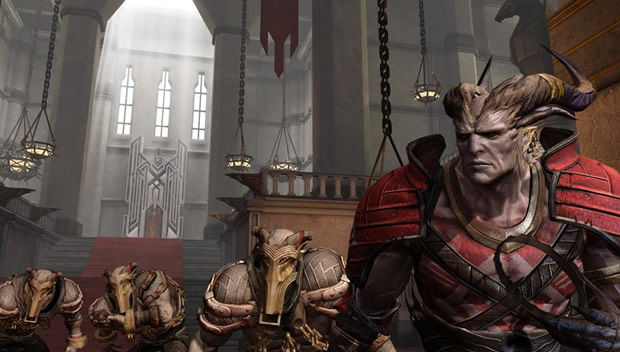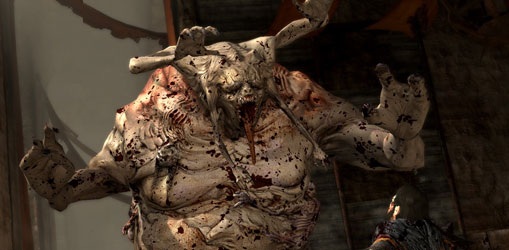Dragon Age 2 was expected to be a full-bodied successor to
the very successful and critically acclaimed Dragon Age: Origins, and while a
good game on its own merits, it doesn’t live up to the long-standing legacy
that Bioware has so carefully cultivated in its many quality titles. I wanted
to like Dragon Age 2, but due to its fairly massive reordering of convention,
reduced customization and options as well as the sneaky tricks used to
artificially extend the length of the game, I was appalled by the tone-deaf
approach with which the studio handled the game design. As a result of these changes,
Dragon Age has become much more of an action title than Bioware RPGs of the
past; I really thought this game should have been a console-only side-story
game, much like how the Fallout series spawned abominable Brotherhood of Steel,
another action game strained from the (then) corpse of the franchise. Instead,
with only enough content to fill a third of what the developers promised,
Dragon Age 2 was released as a complete sequel on all platforms.
At first, Dragon Age 2 has a good presentation, with a new
battle system, GUI and skill system. The former much closer to a conventional
console gauntlet-type beat-em-up than the previous titles Neverwinter
Nights-style gameplay, the latter more streamlined and focused towards
pre-selected archetypes rather than particular customization.

The combat system is much simpler and easy to manage, with
only a few abilities that matter before the enemy is demolished, unlike the
multitude of abilities that took research and proper preparation to use
properly in DA: O. Some disliked this change, but it wouldn’t have been a
problem other than the fact that it allowed massive amounts of enemies to be
turned into gibs by the truckload; enemies shouldn’t be so easy to kill in an
RPG, which this game can be called only loosely.
The inventory is similar to the first game and cleanly
presents items and equipment in appropriately separated sections. However,
while the game allows you to choose your own equipment (torso and pants,
gloves, helmet, boots, rings), it prevents you from choosing equipment for team
members, instead locking in their default clothing for the duration of the
10-year game, which I’m sure become quite smelly. This choice, which I’m sure was
forced due to restricted production time, gives your allies the impression that
they are never permanent members of your team and never really leave the
position of ‘friend of the party’ rather than actually part of it, considering
your lack of control over them. Was General Leo in Final Fantasy IV a member of
your team because you were able to control him in some sections, even though you
were unable to customize him at all? The members of your team in Dragon Age 2
gave me that impression, unlike the much more cohesive cabal in Dragon Age:
Origins.
The worst parts of Dragon Age 2 are the oft-maligned repeated
dungeons that fill the majority of the game. Whereas in the first game each area is unique and usually has some permanent lore attached to it, Dragon
Age 2 uses the same small pool of areas for every single ‘unique’ dungeon in
the game, ensuring you’ll form a deep relationship with the same caves or city
streets by the end of the game. Enemies pop in from thin air as you pass
trigger points or clear the area of the first wave, defending their patch of
ground even though you cleared this place out just moments ago in an entirely
separate quest in an ‘entirely separate’ dungeon. Why is it that every gang
lives in the same set of rooms in Darktown? Why do I have to clear out the
docks of enemies every three quests? Every mission is basically a bounty-hunter
quest of MMO fame with no real goal other than repeatedly exercising combat
prowess; there are only two or three important quests that deviate from this
formula, and even then they are resolved in the same fashion, with little
buildup or personal involvement via plot or other device.

On its own, Dragon Age 2 is an above-avergae beat-em-up with RPG
elements; but it almost feels like this was intended to be another game entirely
but then had the Dragon Age label slapped on it at the last minute to take
advantage of the famous brand. With far more emphasis on action and with
decidedly less attention given to solid plot and character development, it was a game that could’ve been so much more, if it had been given the care
that previous Bioware gems like Knights of the Old Republic or Dragon Age:
Origins had been given. In the end, Dragon Age 2 was a game that I really
wanted to like, but instead let me down in a big way.